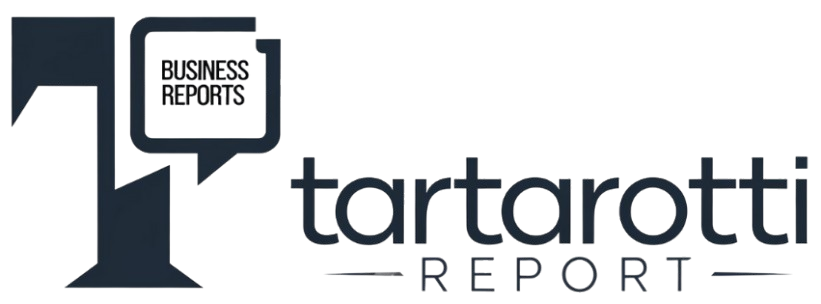Introduction:
In the current scenario of financial globalization, Family Offices are emerging as sophisticated and essential structures for the efficient management of significant family wealth. With global wealth exceeding US$400 trillion by 2023, according to recent reports, and an increasing internationalization of family interests, the need for a multi-jurisdictional approach to wealth management has become imperative.
As an expert in international wealth planning and a consultant with more than two decades of experience assisting high net worth families, today I will unravel the nuances of multi-jurisdictional wealth management through international Family Offices. This comprehensive guide will provide crucial insights on how to structure, operate and optimize a Family Office to meet the complexities of a diversified global estate.
This article is designed for high net worth families, family office managers, private wealth advisors and estate planning professionals looking to enhance their international wealth management strategies. We’ll turn complex concepts into actionable strategies, empowering you to preserve and grow family wealth across generations and borders.
Part 1: Ready to Roll 🚀 – Basic Strategies and Practical Actions
Part 1, “Ready to Roll”, offers practical actions and immediate advice for entrepreneurs who need quick and effective guidance.

1. Fundamentals of International Family Offices
Before we dive into advanced strategies, it’s crucial to understand the basics:
- Definition of an International Family Office:
- Structure dedicated to the holistic management of family assets with global interests
- Focus on wealth preservation, growth and succession
- Types of Family Offices:
- Single Family Office (SFO)
- Multi-Family Office (MFO)
- Virtual Family Office
2. Structuring an International Family Office
- Choosing the main jurisdiction:
- Factors to consider: political stability, tax regime, financial infrastructure
- Popular jurisdictions: Switzerland, Singapore, London, Dubai
- Operating Model:
- Centralized vs. Hub-and-Spoke
- In-house vs. Outsourcing of specific services
- Core Team:
- CEO/CIO with international experience
- Specialists in tax planning, investments and compliance
3. Key Areas of Multi-Jurisdictional Asset Management
- Global investment strategy:
- Geographical and asset class diversification
- Consideration of opportunities in emerging markets
- International tax planning:
- Efficient use of tax treaties
- Structuring to minimize double taxation
- Family governance:
- Development of family constitution
- Implementation of family councils
4. Initial Compliance and Risk Management
- KYC/AML Global:
- Implementing robust due diligence processes
- Monitoring international transactions
- Data protection:
- Compliance with regulations such as GDPR
- Cyber security for sensitive information
- Consolidated reporting:
- Implementation of multi-currency accounting systems
- Development of customized dashboards for a global view of assets
Part 2: Deep Dive 🤿 – Technical Depth in Advanced Strategies
Part 2, “Deep Dive”, provides in-depth analysis for those who wish to delve into the technical and complex aspects of international finance.

5. Advanced Asset Structuring Strategies
5.1 Use of International Holding Structures
- Holding Companies in Strategic Jurisdictions:
- Example: Luxembourg holding company for European investments
- Advantages: Tax efficiency, asset protection, operational flexibility
- Layered structures:
- Top holding company > Regional holding companies > Local operating entities
- Benefits: Risk isolation, tax optimization, ease of succession
5.2 International Trusts and Foundations
- Discretionary Trusts:
- Favorable jurisdictions: Cayman Islands, Jersey, New Zealand
- Applications: Succession planning, asset protection
- Private Foundations:
- Popular in civil law jurisdictions: Liechtenstein, Panama
- Advantages: Family control, flexible governance
5.3 Hybrid and Innovative Structures
- Protected Cell Companies (PCCs):
- Use for segregation of assets and risks
- Jurisdictions: Guernsey, Malta
- Private Investment Funds:
- Structuring family investment vehicles
- Benefits: Pooling family capital, professional management
6. Advanced Tax Strategies for Global Wealth
6.1 Tax Residency Planning
- Strategic Use of Preferential Tax Regimes:
- Example: Non-Habitual Resident Regime in Portugal
- Considerations: Impact on overall family taxation
- Tax Exit Planning:
- Strategies for changing tax residence
- Exit tax mitigation and tie management
6.2 Structuring International Investments
- Use of tax treaties:
- Analyzing treaty networks for efficient structuring
- Limitation on Benefits (LOB) and Principal Purpose Test (PPT) considerations
- Strategies for Different Asset Classes:
- Real Estate: Use of REITs and real estate holding structures
- Private Equity: Family fund-of-funds structures
- Impact Investments: Use of hybrid vehicles
6.3 International Succession Planning
- Dynasty and Perpetual Trusts:
- Favorable jurisdictions: Some U.S. jurisdictions, Cayman Islands
- Considerations on rules against perpetuities
- Multiple Citizenship Planning:
- Citizenship by investment programs
- Impact on tax and inheritance flexibility
7. Governance and Operations of International Family Offices
7.1 Advanced Governance Models
- Multi-Tier Board Structures:
- Family Council > Board of Directors > Specialized Committees
- Integration of family members and external experts
- Decision-making protocols:
- Implementation of consensus-based decision-making processes
- Use of technology to facilitate cross-border decisions
7.2 Sophisticated Investment Management
- Customized asset allocation approaches:
- Developing personalized family benchmarks
- Integration of ESG preferences and family impact
- Co-Investment and Club Deals:
- Strategies for accessing exclusive deals
- Structuring co-investment vehicles with other families
7.3 Technology and Innovation in Family Offices
- Equity consolidation platforms:
- Implementation of solutions such as Addepar or Archway
- Integration of traditional and alternative assets for a holistic view
- Use of AI and Big Data:
- Predictive analytics for risk management
- Customizing investment strategies based on family data
8. Future Trends and Strategic Preparation
- Digitization of Assets:
- Integrating crypto-assets and tokens into asset allocation
- Custody and security considerations for digital assets
- Sustainability and impact:
- Developing investment strategies aligned with family values
- Implementation of impact metrics beyond financial return
- Continuous globalization:
- Preparing for new opportunities in emerging markets
- Adapting to an evolving global regulatory and fiscal landscape
- Next Generation:
- Financial education and entrepreneurship programs for heirs
- Integrating technology to engage younger family members
Conclusion
Multi-jurisdictional wealth management through international Family Offices offers extraordinary opportunities for global wealth preservation and growth. However, navigating the complex landscape of international regulations, tax strategies and family dynamics requires a sophisticated and customized approach.
Key points to remember:
- The efficient structuring of an international Family Office must consider legal, tax and operational aspects in multiple jurisdictions.
- Geographical and asset class diversification is crucial, but must be implemented with careful consideration of tax and regulatory implications.
- Robust governance and effective communication are key to long-term success and family harmony.
- Technology plays an increasingly important role in efficient management and informed decision-making.
- Flexibility and adaptability are essential in a constantly evolving global landscape.
As I always emphasize to my clients, there is no single solution that suits all families. The ideal structure and strategy depends on the family’s specific objectives, values, family dynamics and risk profile. To further deepen your knowledge and receive personalized guidance on how to optimize your international family office, I invite you to participate in our next webinar “Masterclass in Global Family Office Management: Advanced Strategies for 2024″. In it, we will discuss case studies, the latest trends in international wealth management and how to navigate the unique challenges faced by high net worth families in an increasingly complex and interconnected world. and Regulatory Challenges for Cryptoassets: Navigating the Global Scenario in 2024”. In it, we will discuss case studies, the latest regulatory trends and advanced strategies for investors and companies in the blockchain space.
FAQs
- Q: What is the typical investment required to establish and operate an effective international Family Office? A: The investment varies significantly depending on the complexity and scope of operations. Typically, for a full international Single Family Office (SFO), a minimum manageable equity of $100 million to $250 million is considered to justify the costs. Annual operating costs can vary from 0.5% to 1.5% of assets under management, depending on the structure and services offered. For families with smaller assets, Multi-Family Offices (MFOs) or hybrid solutions can be more cost-effective.
- USA: Taxed as property, with short- and long-term capital gains rates.
- Germany: Tax-free if held for more than one year.
- Portugal: Currently not taxed for individuals, but this is under review.
- Japan: Classified as “miscellaneous income” and taxed at progressive rates. It is crucial to check the specific rules in your jurisdiction and consider the impact of possible future changes.
- Q: How can an international Family Office effectively manage compliance risks in multiple jurisdictions? A: Managing multi-jurisdictional compliance requires a strategic approach:
- Implement a global compliance team or hire specialists in each key jurisdiction
- Use state-of-the-art technology for transaction monitoring and regulatory reporting
- Maintain close relationships with legal and tax advisors in each relevant jurisdiction
- Implement a robust training and refresher program for the team
- Carry out regular compliance audits and risk assessments
- Consider adhering to international standards such as the Common Reporting Standard (CRS)
- Q: What are the main considerations when structuring global investments to minimize the tax burden? A: The main considerations include:
- Careful analysis of double taxation treaties between relevant jurisdictions
- Strategic use of holding structures in tax-efficient jurisdictions
- Consideration of special tax regimes for certain types of income (e.g. patent box regimes)
- Careful tax residency planning for family members
- Structuring investments to maximize tax treaty benefits
- Attention to CFC (Controlled Foreign Corporation) and GILTI rules for families with connections to the US
- Implementation of tax deferral strategies where appropriate It is crucial that all strategies are implemented with real economic substance and in compliance with the latest anti-abuse regulations.
- Q: How can an international Family Office balance the needs of different family generations? A: Balancing intergenerational needs requires a multi-faceted approach:
- Developing a clear family constitution that articulates shared values and goals
- Implementing governance structures that give a voice to all generations
- Creating financial education programs tailored to different age groups
- Offer opportunities for younger members to get involved in philanthropic or impact projects
- Consider creating separate investment pools for different objectives and time horizons
- Use technology to facilitate communication and engagement between generations
- Implement clear policies on distributions and access to family funds
- Q: What are the emerging investment trends for international Family Offices? A: Some significant trends include:Q: How are jurisdictions approaching the regulation of stablecoins? A: The approach varies, but there is a growing trend towards greater scrutiny:
- USA: Proposals to regulate stablecoin issuers as banks.
- European Union: The MiCA regulation proposes a specific framework for stablecoins.
- UK: Plans to regulate stablecoins within the existing payments regime.
- Singapore: Implementing reserve and audit requirements for stablecoin issuers. The general trend is towards greater regulation, with a focus on financial stability, consumer protection and preventing misuse.

Member of the IMA (Institute of Management Accountants) – USA
Member of the AICPA (American Institute of CPAs) – USA
Member of AAII (American Association of Individual Investors) – USA
Member of AAA (American Accounting Association) – USA
Member of the FMA (Financial Management Association) – USA
These associations not only attest to Kleyton’s commitment to professional excellence, but also ensure that his knowledge is always at the forefront of international financial and accounting practices.
With a robust academic background, including a Bachelor’s degree in Accounting and MBAs in International Finance and Accounting, as well as in International Business, Kleyton offers a unique and comprehensive perspective on the global business landscape.
Through the Tartarotti Report, Kleyton invites visionary entrepreneurs and executives to connect, explore opportunities for collaboration and, together, successfully navigate the complex world of international corporate finance.







